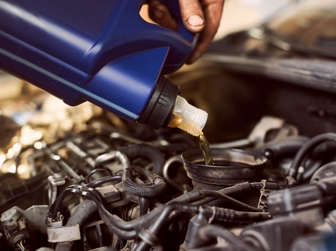Turbochargers are no longer left to be reserved for high-performance vehicles these days. They have become a key feature in modern cars, boosting power while improving fuel efficiency, whether in high-performance vehicles or everyday passenger cars. However, despite their benefits, turbos can still fail over time. Wear and tear, poor maintenance and external factors may lead to costly breakdowns.
Recognising the warning signs of a failing turbo and understanding its common issues can help car owners avoid expensive repairs and keep their vehicles running like new.
The Essential Guide to Car Turbos: How they work and why they fail
Car turbochargers, commonly referred to as turbos, have become an essential component in modern vehicles. They are designed to boost engine performance, improve fuel efficiency, and reduce emissions. Whether you drive a performance car, a family SUV, or a fuel-efficient diesel vehicle, chances are that a turbo is helping your engine deliver more power while using less fuel.
In recent years, South African motorists have seen a rise in turbocharged vehicles due to increasing fuel costs and stricter emissions regulations. Understanding how turbos work, the signs of failure, and maintenance tips can save car owners from costly repairs and unexpected breakdowns.
A brief history of turbos in cars
The concept of forced induction dates back to the late 19th century, but it was Swiss engineer Alfred Büchi who patented the first turbocharger in 1905. Turbochargers were initially developed for aircraft engines during World War I, improving performance at high altitudes.
The first turbocharged production cars appeared in 1962, with the Chevrolet Corvair Monza and Oldsmobile Jetfire. However, it was in the 1970s that turbocharging truly gained momentum. BMW (2002 Turbo, 1973) and Porsche (911 Turbo, 1974) were among the first manufacturers to successfully introduce turbocharged performance cars in Europe.
The 1978 Mercedes-Benz 300SD was the first turbocharged diesel passenger car. This breakthrough showcased how turbo technology could enhance both performance and efficiency in diesel engines, proving that turbos were not just for high-performance vehicles but could also be used in everyday cars.
Over time, leading automakers now offer petrol and diesel vehicles with turbos as a way to enhance performance, efficiency and emissions control.
How turbochargers work
To some, the standard definition would be as follows: “A turbocharger is a supercharger driven with exhaust gases energy and increases the engine power by compressing the inlet air to the engine” This leads to more efficient combustion, enhancing power delivery without relying on a bigger engine.
A turbo consists of two main components:
- Turbine Side (Hot Side): Exhaust gases from the engine spin a turbine wheel, which is mechanically linked by a shaft to the compressor wheel. A wastegate regulates exhaust flow to prevent excessive boost pressure.
- Compressor Side (Cold Side): The spinning turbine powers the compressor wheel, which draws in and compresses air before sending it to the engine. The compressed air often passes through an intercooler to reduce heat and improve efficiency.
By increasing the air supply to the engine, the turbo’s combustion efficiency is increased, enhancing overall performance and fuel consumption. Keep in mind that practical fuel saving techniques depend on everyday driving habits.
Types of Car Turbos
Today, you’ll find several car turbochargers, each designed to meet different performance needs:
- Single-Turbo: The most common type, balancing power and efficiency.
- Twin-Turbo: Uses two turbos to reduce lag and improve performance.
- Twin-Scroll Turbo: More efficient than a single turbo, as it divides the exhaust flow for better responsiveness.
- Variable Geometry Turbo (VGT): Adjusts turbine angles to optimize airflow and reduce lag, common in modern diesel engines.
- Electric Turbo: A new technology that eliminates lag by using an electric motor to spool up the turbo instantly.
Signs of a failing turbo
Turbos are designed to last for a long time, but they are susceptible to failing. This is due to wear and tear or poor maintenance.
Here are common signs of a failing turbo:
- Loss of Power: If your car feels sluggish and lacks acceleration, your turbo may not be functioning properly.
- Excessive Smoke from Exhaust: Blue or grey smoke indicates oil leakage into the combustion chamber.
- Loud Whining Noises: A failing turbo often produces a high-pitched whining or siren-like sound.
- Check Engine Light: A malfunctioning turbo can trigger warning lights on your dashboard.
- Increased Oil Consumption: A turbo in poor condition can leak oil, leading to faster depletion.
- Boost Pressure Issues: Inconsistent or reduced boost pressure can indicate a failing turbo.
What causes a turbo to fail?
Cars with turbos operate under extreme temperatures and pressures, leaving them prone to damage.
Here are the most common reasons why turbos fail:
- Oil Starvation or Contamination: Turbos need engine oil for lubrication and cooling. If oil levels are low or dirty, overheating and wear increases.
- Foreign Object Damage: Should small debris or dirt enter the turbo, the compressor or turbine blades could be at risk.
- Overboosting or Excessive Pressure: Excessive boost pressure can lead to premature failure.
- Wear and Tear: Deterioration affecting components such as bearings and seals affects performance.
- Clogged or Damaged Air Filters: If the air filter is blocked, the turbo’s airflow is reduced and then forces the turbo to work harder, contributing to overheating.
- Poor Maintenance Practices: Irregular oil changes, low-quality lubricants, and ignoring service intervals can contribute to turbo wear.
When to ask for professional help
If you notice any of the signs mentioned, take your car in for a check-up. It will save you from costly bills and further engine damage as well as pick up on any other issues that might not always look and feel obvious. Always consult a professional mechanic for a thorough inspection.
Here’s when you should seek professional intervention:
- If you notice a rapid drop in fuel efficiency and performance.
- If unusual noises and excessive smoke occur.
- If oil consumption has rapidly increased or leaks start to appear.
- If the check engine light comes on.
With that said, don’t leave it to chance. Issues with your car’s turbo can lead to expensive repairs – it could set you back by R 10,000 or higher (depending on your car’s make and model).
What South African drivers should know about turbos
Getting to know the turbo basics and maintenance is essential, especially when you have to consider South Africa’s diverse driving conditions.
Here are a few key extra considerations:
- Fuel Quality Matters: The wrong type of fuel can lead to carbon buildup in the turbo and engine.
- Regular Oil Changes: Regular oil changes help prolong the life of your turbo.
- Idle Before Shutdowns: It's still good practice to allow a brief cool-down period of a few seconds before shutting down the engine after hard driving.
- Watch for Dust and Debris: If you drive in rural or off-road areas, ensure air filters are clean to prevent foreign object damage.
- Use a Trusted Mechanic: Not all mechanics specialise in turbocharged engines, so choose an expert for repairs and maintenance.
Final thoughts
Turbochargers play a crucial role in modern vehicles by enhancing power and efficiency. While they are built to last, neglecting regular maintenance can lead to a damaged engine and wallet. By understanding how turbos work, recognising signs of failure and following proper care tips, South African drivers can enjoy knowing they’re covered for a safer, smoother drive.
If you suspect your turbo isn’t functioning properly, don’t wait—get it checked by a professional. Even just relying on the right car maintenance basics ensures a more powerful, fuel-efficient and reliable car for years to come.
Key Factors to Consider When Buying a Compact Car
February’s Top 10: The Best-Selling Bakkies in South Africa


